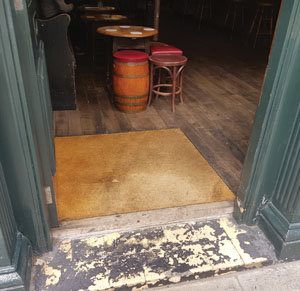We met Phillipe Chiarella, Programme Manager of the Safer Sounds Partnership, set up by the London-based Safer Business Network to offer services to make London’s thriving night-life more safe and vibrant.
The partnership has developed an event operation plan for venues. It’s for a venue to bring together all their plans into one document, with accompanying guidance. Such as; how to check if a security contractor is legitimate? What to do, if you the venue have a security firm, but the promoter wants to bring in their own?
That single plan can not only mitigate risk, but show to the authorities that you have taken the relevant steps; and the event may get the go-ahead (and without that, no profit). We ask Phillipe to talk further about what if venue and promoter have different security. It depends on the (premises) licence, he replies. Some licences say a venue has to inform the police if the security company changes. Some licences don’t allow a promoter to bring in different security. Ultimately, the venue has to decide what goes. if a promoter insists on their own security staff, the first thing is to check SIA badges (because fakes are around too). Next, check the security contractor is insured; because a lot of premises’ insurance won’t cover external security. And those external staff will need briefing. Maybe the external staff are there to look after the takings; that’s fine, but if the door staff are involved in physical trouble, ultimately the venue is responsible. In other words, the external security must be briefed about ejection and any other policies, so everyone knows where they stand.
While door badging and indeed the Security Industry Authority as a regulator began in the 2000s at least partly to combat violence in pubs and clubs, in recent years door staff have been required to see to customers’ vulnerability. You can find nightclubs where the lead security person, or even a medic, is responsible for patrons’ welfare. The issue arises in the day-time too; a vulnerable person can be an elderly or confused person walking about a shopping centre, or a young woman (or man) who’s had too much to drink. In the July 2018 and September 2018 print issues of Professional Security magazine, we featured two Metropolitan Police-commissioned videos, and the WAVE (Welfare and Vulnerability Engagement) scheme respectively. Their aim; to raise awareness among night-goers and venues of risks – and how door and general staff at venues, and the customers’ mates, can reduce risk of harm.
Next: part three of three: training on offer.
For those WAVE videos, visit the National Business Crime Centre (NBCC) website.
Picture by Mark Rowe; entrance, Southwark pub.









